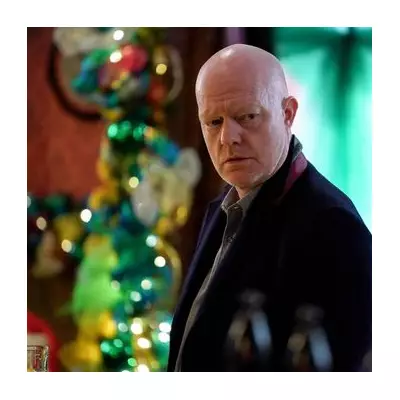
In an unexpected fusion of rock and roll and fine art, BBC2's documentary Turner: The Secret Sketchbooks featured a remarkably eloquent art critic who captivated audiences with his analysis of J.M.W. Turner's masterpiece Falls Of The Rhine At Schaffhausen.
The Rock Star Art Critic
The programme revealed Ronnie Wood of The Rolling Stones as the surprising authority who spoke with profound insight about Turner's techniques. Wood drew attention to the movement and thickness of the paint, highlighting how the artist masterfully expressed turbulence and unrest through his brushwork.
Beyond mere appreciation, Wood disclosed that studying Turner's work had directly influenced his music career, stating: 'When I look at Turner's paintings, they are the epitome of drama.' This revelation positions Turner's visual artistry as a cross-disciplinary inspiration that transcends traditional creative boundaries.
Turner's Hidden Legacy Revealed
The documentary unveiled the astonishing scale of Turner's artistic output, revealing that upon his death, the artist left behind 37,000 sketches, many of which had never been publicly displayed. Remarkably, some of these works could only be shown after the 9pm watershed, marking their first appearance on British television.
While Tim Spall's successful film portrayed Turner's later years and his passionate affair with a Margate landlady, the documentary explored the artist's extraordinary early life. Turner emerged from humble beginnings as a working-class boy from Covent Garden, then considered a rather seedy area of London, where his father worked as a barber.
From Barber Shop to Royal Academy
Young Turner's artistic journey began unexpectedly when his sketches were displayed in his father's barber shop. Royal Academy members, who were regular customers, noticed the self-taught boy's exceptional talent and enrolled him into the Academy's prestigious drawing school.
Turner became the youngest student ever accepted into the institution, but his working-class background made him stand out dramatically among the upper-crust establishment. The programme compared this cultural clash to 'Danny Dyer presenting University Challenge', highlighting the social barriers Turner overcame to achieve artistic greatness.
Contemporary Voices on Turner's Legacy
The documentary featured numerous talking heads who identified personal connections with Turner's story. Actor Tim Spall noted their shared London roots, while Chris Packham related to Turner's obsessive nature. Artist Tracey Emin recalled her own difficulties fitting in at art school, where critics found her voice 'so shrill' - a stark contrast to her current softly-spoken demeanour that could 'run an elocution class'.
Perhaps the most intriguing analysis came from a psychoanalyst who suggested Turner's early architectural paintings represented a search for stability following a traumatic childhood. The programme revealed Turner's mother suffered psychotic episodes during an era when madness was believed to be hereditary, leading the artist to place her in a psychiatric hospital and never visit her again, fearing professional repercussions.
Enduring Criticism and Modern Appeal
Despite his current status as a master artist, Turner faced significant criticism during his career. Contemporary detractors complained 'You can't tell which is the land and which is the sky', while others dismissed his later works as resembling 'omelettes'.
The documentary's success and Ronnie Wood's compelling performance naturally raises the question: when will the BBC commission Ronnie Wood On Art? Given the rock star's articulate and passionate analysis, such a programme would undoubtedly find an eager audience, bridging the worlds of rock music and fine art in unprecedented ways.





